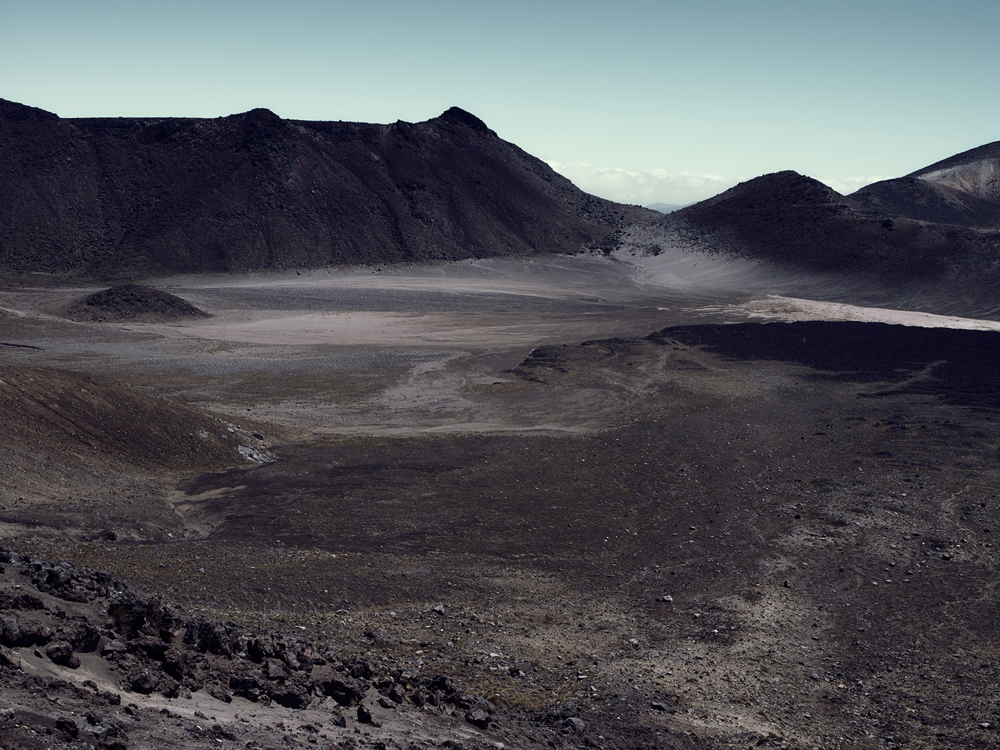Walking through volcanic landscape brought up thoughts in me that were there before, but I couldn’t put into words. Just like our construction of reality, the ground on which we live is only seemingly solid. Always looking for stability and security, this insight scares many people. But only when we let go of the thought of being able to classify and control everything, the fragility of the landscape itself becomes apparent. And it is only when we embrace the idea of constant change that we are truly free.
What unites the Maori narratives, which differ somewhat among the tribes, is that they see the volcanoes around Tongariro as living creatures – in one version, high priest Ngatoroirangi traveled inland for the first exploration of the island. Climbing to the summit of Tongariro, he nearly froze to death from icy winds and called for help from his sisters in the distant Maori homeland of Hawaiki. They complied with his request in the form of fire under the earth, forming geysers and volcanoes along the way, and emerged at Tongariro to warm the priest. To this day, the volcanic landscape has a genealogical connection with the Maori‘s historic homeland and the mountains are revered as tribal ancestors.
Personally, I believe less in the embodiment of the landscape as in the dissolution of the supposed boundaries between humans and nature – “like living cells in a larger body” (Joanna Macy). All living creatures are members of the same family in an interconnected world and thus should be treated with humility and respect.
“In Life, Change Is The Only Constant” (Heraclitus).
Carola Plöchinger is a german photographer and former fashion designer. Based on personal experience, her early work deals with questions of identity and belonging: how origin determines identity, but also why, in a supposedly enlightened time in which gender equality should be the norm, their expression through clothing is still so different. This research has led to the foundation of her former menswear label IO (italian: I) with the aim of questioning the classic perception of roles. Although narratives, materiality and texture of clothing continue to have an influence on Plöchinger’s work, the common practice in fashion does not correspond to her idea of value and appreciation of craftsmanship and a sustainable use of resources.
She used a three-month journey from Japan to New Zealand in 2018/19 to realize personal artistic projects: for investigations of landscape, which on the one hand revolve around the concept of the adopted country (“Wahlheimat” in german directly translated means “home of choice”), on the other hand with the vulnerability of the landscape and nature itself. Her photographs explore the interplay between place, identification and dissociation.
Plöchinger holds a Master of Arts in Visual Communication with a focus on photography of the Berlin University of the Arts.
© text and pictures by Carola Plöchinger

















